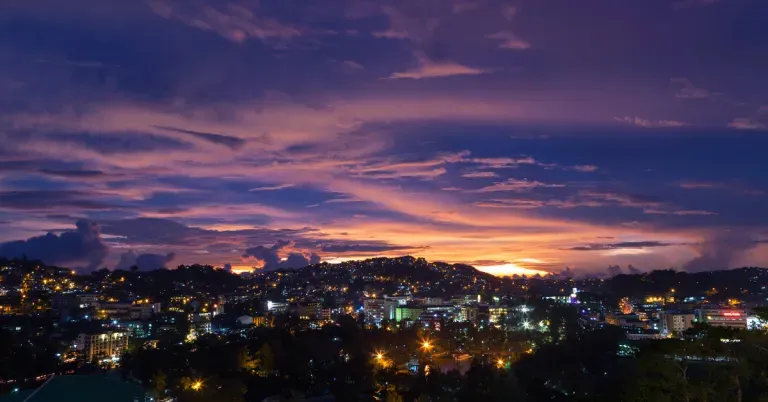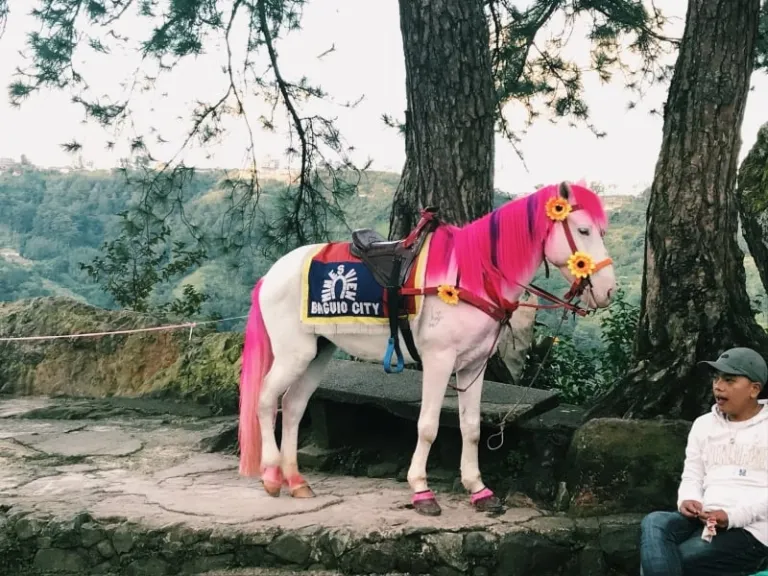Our favourite places to stay on this sleepy Cebu island.
Life in Baguio City: Here’s What It’s Really Like

Strawberries, swan boats, and sunshine are usually what comes to mind when we think of Baguio City. But in the four years of my life as a resident in the City of Pines, what I remember most clearly is the rain. Come to think of it, the rainfall probably pushed back all my other memories into a haze; still, I’ll try my best to recall some of the best and worst moments of my life in Baguio City.
Also read: Baguio Facts: 7 Things About The City of Pines
I remember, with a clarity that still makes me shiver, the day I settled in Baguio City. It was a week or so before the start of my first semester at the University of the Philippines – Baguio. As this was well before the time that the academic calendar shifted, I’m pretty sure that this happened in the month of June.
Sixteen-year-old me walked into what was about to be my dorm for the next two semesters. Little did I know that that dorm would be my first failed choice of accommodation out of the eight other dorms and apartments that followed. I thought I’d stay in this purple dorm, but I had many wrong assumptions — including this one.
After my mother helped me unpack my bags, she kissed me goodbye and cried. I remember that it was raining that day, and that I couldn’t believe I was about to spend a year on my own before I could return to my hometown. This was my second wrong assumption — six months later, I decided I wanted to stay in Baguio longer.
Also read: Where to Stay in Baguio: 20 Airbnb Homes for All Budgets
Secondhand shopping
It didn’t take me long to get used to the gloomy weather in the city. Within the first week of my life in Baguio, I’d already managed to power through it with the help of my roommates. One rainy evening, we found ourselves — all dressed in the thickest jackets and cheapest pairs of slippers we owned — in the Baguio night market. An upperclassman offered to accompany us to this magical place where we could apparently shop for raincoats, denim jackets, and boots at the cheapest price. We heard that the best way to bargain with the vendors was to speak to them in the local dialect. Thus, I spoke in the flimsiest Ilocano ever: Mano daytoy, manang?

After our first successful shopping spree, the Baguio night market became a monthly habit for us. Sometimes, we went home with bags of clothes in hand: A stylish Levi’s denim jacket for ₱50. A sturdy pair of Doc Martens for ₱400. Some cheesy boots with the fur that were sold at ₱120.
Other nights, we went home empty-handed, but with our stomach full. We’d skip dinner to feast on the night market street food. Cheese corn. Shawarma. Mooncakes. Crispy chicken skin. Calamares. Mami. Isaw. After the countless times we’d spent at this place, we became better shoppers. In just a few months, we learned everything — from chasing after pickpockets to inspecting stains amid the dark and drizzling sky.
Also read: 15 Best Baguio Pasalubong Items to Take Home
Coffee and sinanglaw
By my third year in college, I’d outgrown my obsession for thrifted sweaters. Instead, my energy was focused on my newfound affinity for journalism. I’d spend most of my time in Luisa’s Café, sipping on my brewed coffee while reading the Baguio Midland Courier. Sometimes, I spent the passing hours people-watching from the second-floor windows. It was at this old-school café where I met several veteran journalists. Many of them were usually huddled over buckets of beer and packs of cigarettes, trying to drink and smoke the cold away.

Other days, I was too tired to walk down Session Road. So, I’d drop by Mount Cloud instead. There, I’d splurge my allowance on another book that would distract me from finishing my actual readings. Once my stomach grumbled, I’d head to the neighbouring carinderia to order some sinanglaw and coffee. Again, the perfect combination for a rainy day.
Also read: Cafes in Baguio: Where to Get the Best Coffee and Hot Chocolate in the City of Pines!
All things mainstream, and not
Non-residents view Baguio City in a different way than the locals do. Aside from the complaints against crowds and traffic, many tourists love putting the city on a pedestal. For non-residents, Baguio City is merely the perfect summer getaway, a fun vacation away from the otherwise blistering Philippine sun. But to locals, and even to many short-time residents like myself, the city isn’t just an escape. It’s our home.

Life in Baguio City is more complex than words can explain. Nevertheless, I will try to describe it even more: The city is a place of happiness and joy; but also, of constant, lingering nostalgia. Life here is unhurried, steady, sweet. It forces you to slow down every so often — especially when you realise that none of your freshly laundered clothes are dry yet.
Baguio is a soft reminder of a forgotten sense of humanity. In this city, stop lights and pedestrian lanes are respected, and taxi drivers are always ready to give back your change in full.
Also read: Where to Eat in Baguio: Top Tips for the Wandering Foodie Heading Up North

Years after moving back to my hometown, the rain still reminds me of the deafening repose of Baguio. It reminds me of the slippery pavements and the flooded hills. Of the sweet cacao, Benguet coffee, and piping hot mami. Indeed, Baguio City offers something different to each soul. To me, it offered the beauty of life amid the endless rain.
Published at
About Author
Danielle Uy
Subscribe our Newsletter
Get our weekly tips and travel news!
Recommended Articles
10 Bantayan Island Resorts, Hotels, and Rentals for Your Tropical Escape 10 Best Mountain Cafes in the Philippines for Your Peak Coffee Experience Coffee date on the mountains, anyone?
10 Family Outing Ideas in Metro Manila Under ₱500 Looking for a weekend bonding with the family under ₱500? Head to these places, pronto!
10 Fun Things to Do in Manila Alone Live your best life in Manila, even when you’re riding solo.
10 Instagrammable Laguna Restaurants and Cafes You’ll Love Elevate your Insta-game at these Laguna spots.
Latest Articles
Ultimate Camarines Norte Travel Guide: Waterfalls, Beaches, and More From surfing to secret waterfalls, Camarines Norte is your next escape!
Legoland Shanghai Opening in 2025: What to Expect New theme park alert in China
Pahiyas Festival 2025: A Vibrant Celebration in Lucban Quezon Pahiyas is back and brighter than ever!
Top 10 Family-Friendly Things to Do in Europe Unmissable experiences for all ages
Scoot’s Direct Flights from Singapore to Iloilo Are Finally Here — Here’s What You Need to Know Fly direct from Singapore to Iloilo with Scoot!

